Taxifolin, a natural flavonoid interacts with cell cycle regulators causes cell cycle arrest and causes tumor regression by activating Wnt/ β -catenin signaling pathway
- PMID: 30367624
- PMCID: PMC6204009
- DOI: 10.1186/s12885-018-4959-4
Taxifolin, a natural flavonoid interacts with cell cycle regulators causes cell cycle arrest and causes tumor regression by activating Wnt/ β -catenin signaling pathway
Retraction in
-
Retraction Note: Taxifolin, a natural flavonoid interacts with cell cycle regulators causes cell cycle arrest and causes tumor regression by activating Wnt/β -catenin signaling pathway.BMC Cancer. 2025 Oct 16;25(1):1598. doi: 10.1186/s12885-025-15080-1. BMC Cancer. 2025. PMID: 41102723 Free PMC article. No abstract available.
Abstract
Background: New approaches for the prevention of colon cancer perseveres an essential necessity. Though, resistance to existing chemo-preventive drugs is moderately predominant in colon carcinogenesis. Taxifolin (dihydroquercetin) is a flavononol, have shown virile biological activities against few cancers. The current study was designed to investigate and equate antitumor activity of Taxifolin (TAX) in colorectal cancer cell lines and in HCT116 xenograft model in a comprehensive approach.
Methods: Two human colorectal cancer cell lines HCT116 and HT29, were used. 3-(4, 5-dimethylthiazol-2-yl)-2, 5-diphenyl tetrazoliumbromide (MMT) protocol was performed to elucidate the impact of TAX and β- catenin inhibitor (FH535) on the viability of HCT116 and HT29 cell lines. Apoptosis /cell cycle assay was performed. Data interpretation was done with a FACScan (Becton Dickinson, NJ). About 1 × 104 cells per sample were harvested. Histograms of DNA were analyzed with ModiFitLT software (verity Software House, ME, USA). Western blotting and RT-PCR were performed for protein and gene expression respectively in in vitro and in vivo.
Results: We found that TAX induced cytotoxicity in colorectal cells in a dose-dependent manner and time dependent approach. Further, our data validated that administration of TAX to human colorectal cancer HCT116 and HT29 cells resulted in cell growth arrest, variation in molecules controlling cell cycle operative in the G2 phase of the cell cycle and apoptosis in a concentration dependent approach. Further our results concluded that TAX administration decreases expression of β-catenin gene, AKT gene and Survivin gene and protein expression in in vitro and in vivo.
Conclusion: Our findings proposed that targeting β-catenin gene may encourage the alterations of cell cycle and cell cycle regulators. Wnt/β-catenin signaling pathway possibly takes part in the genesis and progression of colorectal cancer cells through regulating cell cycle and the expression of cell cycle regulators.
Keywords: Colorectal cancer; Taxifolin and cell cycle; Wnt/ β-catenin.
Conflict of interest statement
Ethics approval and consent to participate
Athymic nude mice studies were performed according to the Institutional principles for the concern and use of animals and the experimental protocol was approved (BAS#0256) by the ethical board of Quaid-i-Azam University, Islamabad, Pakistan and Committee dealing animal care and use, college of Pharmacy, King Saud University, Kingdom of Saudi Arabia. Before starting experiment on human colorectal cancer cell lines HCT116 and HT29 (ATCC® CCL-247 ™ and ATCC® HTB-38 ™ respectively) purchased in July 2017 from American Type Culture Collection (MD, USA), ethical approval was taken from ethics committee of preclinical studies, college of pharmacy, King Saud University, KSA.
Consent for publication
Not applicable.
Competing interests
The authors declare that they have no competing interests.
Publisher’s Note
Springer Nature remains neutral with regard to jurisdictional claims in published maps and institutional affiliations.
Figures
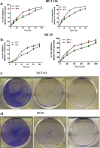
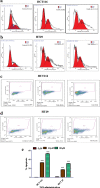
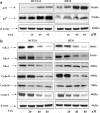
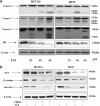
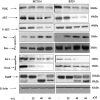


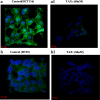
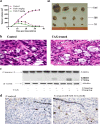

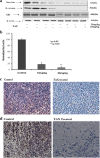
References
-
- Chung T. Philip, Fleshman James W. The Genetics of Sporadic Colon Cancer. Seminars in Colon and Rectal Surgery. 2004;15(3):128–135. doi: 10.1053/j.scrs.2005.02.001. - DOI
Publication types
MeSH terms
Substances
LinkOut - more resources
Full Text Sources
Molecular Biology Databases

